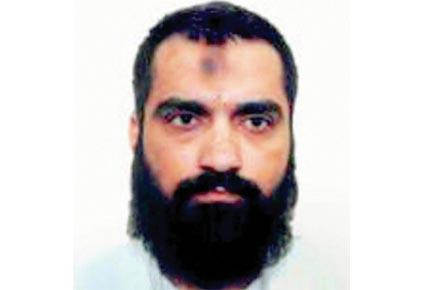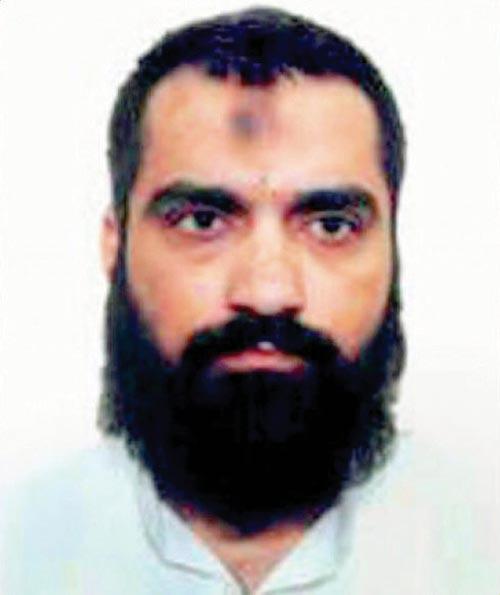Convicted in the Aurangabad arms haul case, Sayed Zabiuddin Ansari claims that he is being treated like an alien; investigation officer terms him a tech savvy master recruiter for the LeT

Sayed Zabiuddin Ansari
Sayed Zabiuddin Ansari, alias Abu Jundal, who was convicted in the Aurangabad arms haul case, claims there is no evidence against him other than an investigating officer's statement.
ADVERTISEMENT

Sayed Zabiuddin Ansari
He also claimed, "I am not Abu Jundal. I was never at those places where police are accusing me of being. Even when David Headley was giving his statement as an approver in 26/11 case, there was no mention of me."
He added, "They didn't listen to what I had to say. Every time my lawyer asked a question to the person who was called Mr Headley, there was an objection from other end. That's the way I was treated."
Yesterday, as the police was escorting Jundal back to prison, he told mid-day, "I am being treated as an alien."
Terror recruiter
Jundal went for training to Pakistan in 2003 and turned into an active recruiter for terror outfit LeT.
"He started recruiting people from Beed and other parts of India for Lashkar-e-Taiba and Indian Mujahideen," said Assistant Commissioner of Police Sunil Deshmukh, who was part of the Anti-Terrorism Squad (ATS) team that intercepted the arms haul in 2006 in Nashik.
According to the officer, Jundal wanted to execute a major strike in 2006, however, the youth that he had recruited got cold feet at the last minute. The vehicle that was carrying the ammunition was apprehended by the ATS and the youth were arrested. However, Jundal managed to flee.
He escaped to Bangladesh and later to Pakistan, where he married a local and even had a son. During his stint at the LeT he became close to Hafiz Saeed and the ISI.
"He was tech savvy and used to hire people via internet and social media. He was soon promoted and swiftly climbed the ranks in the LeT. He went on to execute the 26/11 attacks from the LeT control room in Pakistan," said Deshmukh.
According to officials, when Jundal was apprehended by Saudi Arabia officials in Riyadh, Pakistan tried to prevent his extradition to India by claiming that he was a Pakistani national. However, Indian agencies resorted to DNA testing to secure his custody and extradited him to India in 2012.
"After his arrest, he revealed that several Pakistani officials were sitting with him in the control room guiding the ten terrorists in India. He also said that Saeed was seated beside him. He also told us that the arms cache seized in 2006 was meant for a 26/11 type attack," said Deshmukh.
 Subscribe today by clicking the link and stay updated with the latest news!" Click here!
Subscribe today by clicking the link and stay updated with the latest news!" Click here!






